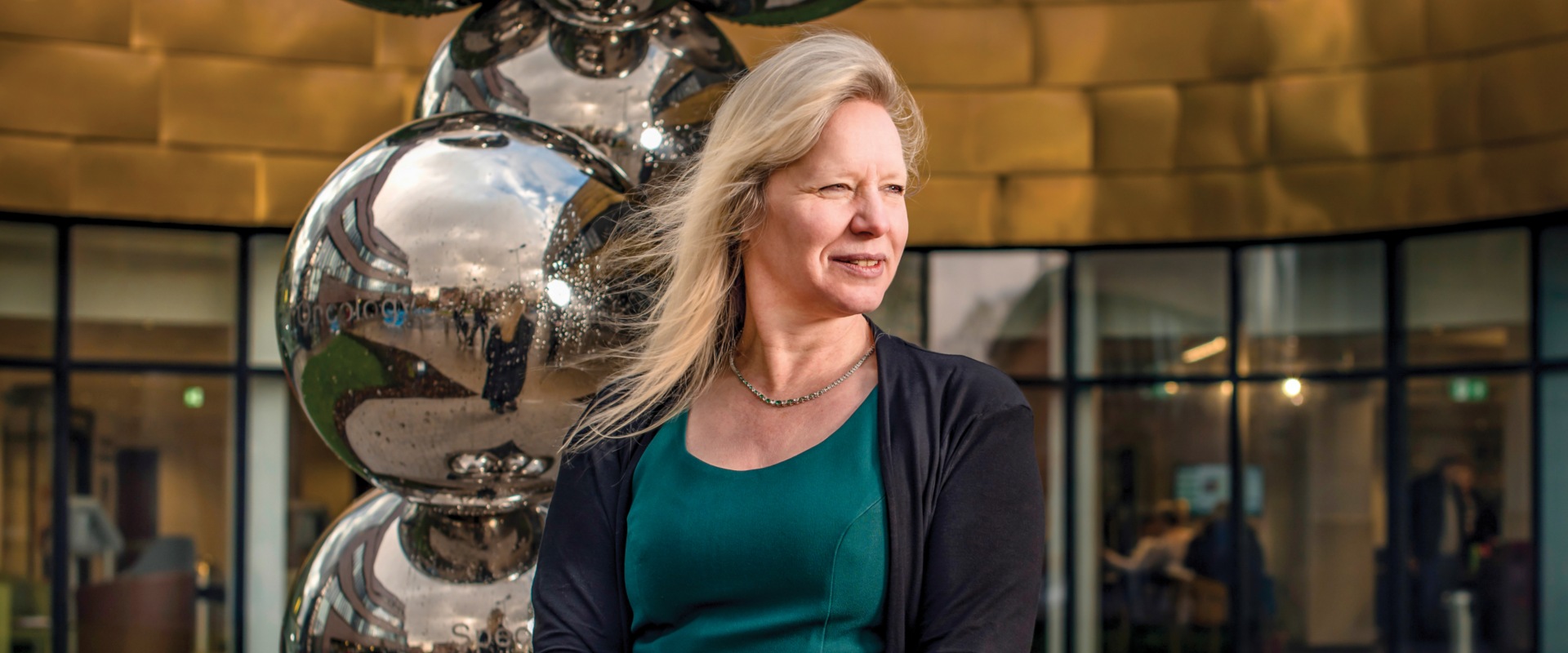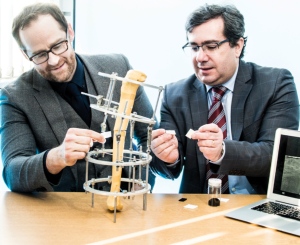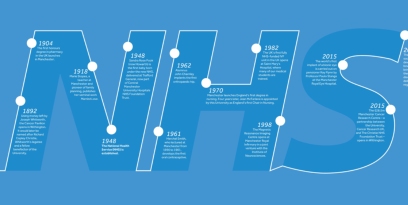Ernest Rutherford first split the atom at The University of Manchester, so it’s only fitting that the next century’s discoveries in proton use should be pioneered here, at the UK’s first NHS highenergy proton-beam therapy centre and dedicated research facility.
In December 2018, the first patient was treated at a new £125 million clinical centre based at The Christie, Europe’s largest cancer hospital, in Manchester.
The centre offers a relatively new type of radiotherapy: proton-beam therapy, or PBT, which offers the potential of fewer side-effects, faster recovery and better outcomes for patients.
Previously, high-energy PBT treatment has been offered overseas to eligible NHS patients – but travelling abroad isn’t always straightforward for patients. The future, however, will be different. Up to 750 patients a year will be treated when the centre is working at capacity.
Research and therapy
Equally crucial as this clinical provision will be the PBT research that will be undertaken on site, ensuring that patients have access to the latest developments in the field.
Leading this work is Karen Kirkby, Professor of Proton Therapy Physics at the University, who had previously played an instrumental role in establishing this area of research in the UK. She believes that bringing research and treatment together like this could bring huge gains.
“By embedding this centre within a world-renowned academic hub, research and trials can potentially be carried out alongside treatments,” she explains.
“This speeds up progress and clinical development, and ultimately, if research shows the evidence, it would mean PBT becoming more widely available in the UK in the future.
“We have a dedicated research room to try and test new ideas which researchers can use each night after the patients have left.
“Working closely with the clinical teams, medical physics and engineering and radiographers means the research is embedded in a clinical environment and brings a critical mass of expertise together.”
It’s our hope that the research generated here will lead to improvements in cancer treatment globally.
A new form of radiotherapy
Radiotherapy has been a cornerstone cancer treatment for more than 100 years. Like all types of radiotherapy, PBT seeks to maximise the damage to the tumour while minimising the dose to the surrounding healthy tissue. It’s the very latest development in radiotherapy to increase our ability to better conform the radiation to the tumour.
PBT aims high-energy protons directly into a person’s tumour. Travelling at two-thirds the speed of light, the protons pass through the surrounding tissue and deposit most of their dose in the tumour.
In some instances,the protons’ unique precision properties, make them an obvious choice over X-rays. This is especially true in children who, being smaller, are more susceptible to tissue damage from ionising radiation and, because of their age, face a more profound impact from the consequences of secondary malignancies in 20–30 years.
Future innovation
Manchester’s clinical and academic environment will become the hub for future scientific and technological developments in PBT, thanks in no small part to the benefits that will be gained from having the research room in The Christie.
“It’s our hope that the research generated here will lead to improvements in cancer treatment globally,” Professor Kirkby continues. “While that might not mean the treatment will be more likely to cure a patient’s disease than conventional radiotherapy, it may widen the treatment potential and opportunities.
“Since we also need to make treatments kinder, PBT is potentially an important new tool to help improve the outlook for people with cancer.”
Cancer milestones
For over a century, Manchester has been at the forefront of cancer research.
Manchester’s cancer researchers and clinicians dedicate their careers to the prevention and treatment of cancer. Their stories are the subject of Cancer Futures, a new publication from the Faculty of Biology, Medicine and Health. Read or download the publication.
Cancer is one of the University's research beacons.





